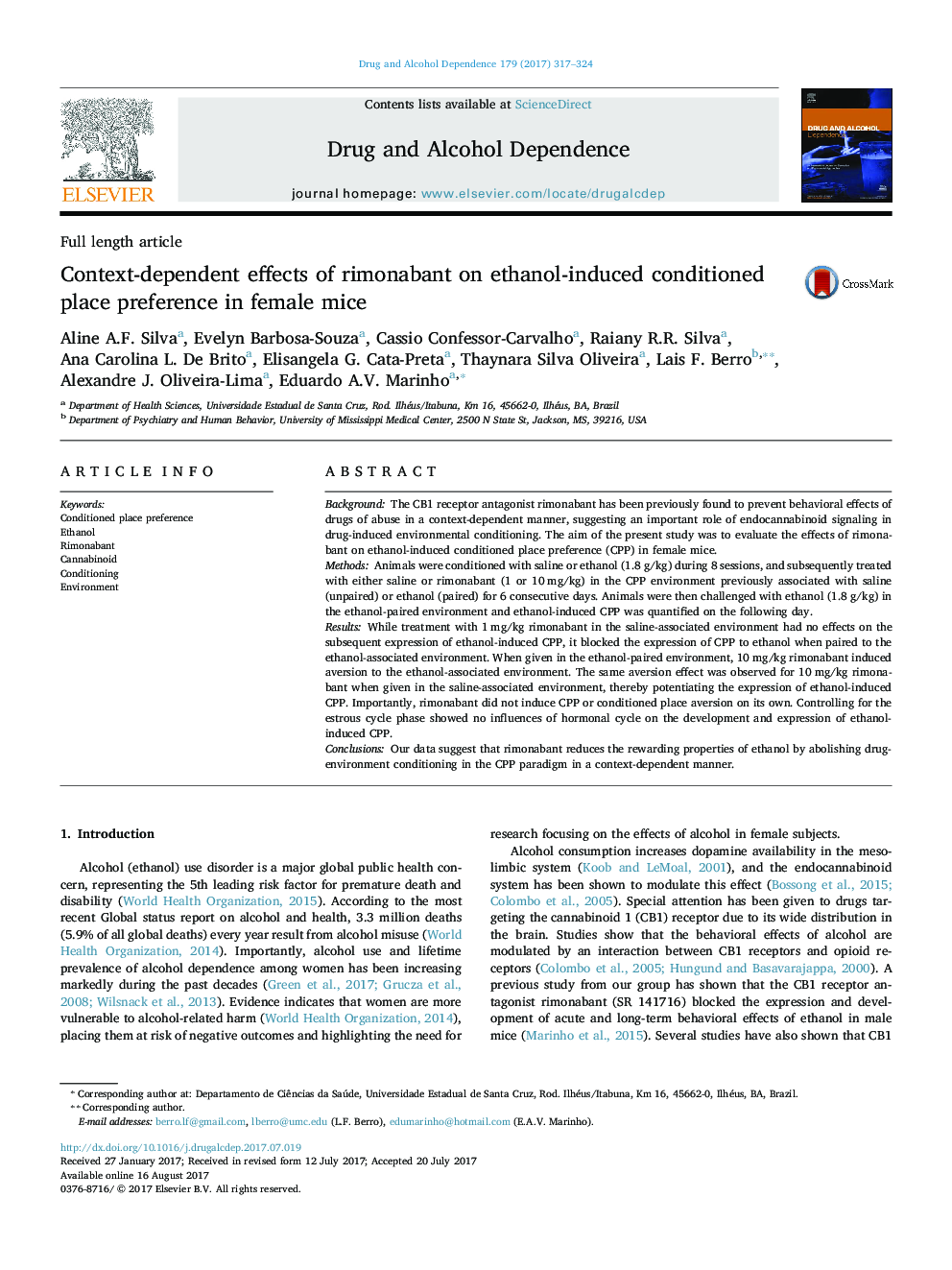| کد مقاله | کد نشریه | سال انتشار | مقاله انگلیسی | نسخه تمام متن |
|---|---|---|---|---|
| 5119959 | 1486112 | 2017 | 8 صفحه PDF | دانلود رایگان |
- Estrous cycle had no effects on ethanol-induced conditioned place preference (CPP).
- Rimonabant reversed CPP to ethanol when given in the ethanol-associated environment.
- A high dose of rimonabant induced aversion to the ethanol-associated environment.
- Rimonabant alone did not induce CPP.
- Rimonabant blocked the rewarding properties of ethanol in a context-dependent way.
BackgroundThe CB1 receptor antagonist rimonabant has been previously found to prevent behavioral effects of drugs of abuse in a context-dependent manner, suggesting an important role of endocannabinoid signaling in drug-induced environmental conditioning. The aim of the present study was to evaluate the effects of rimonabant on ethanol-induced conditioned place preference (CPP) in female mice.MethodsAnimals were conditioned with saline or ethanol (1.8Â g/kg) during 8 sessions, and subsequently treated with either saline or rimonabant (1 or 10Â mg/kg) in the CPP environment previously associated with saline (unpaired) or ethanol (paired) for 6 consecutive days. Animals were then challenged with ethanol (1.8Â g/kg) in the ethanol-paired environment and ethanol-induced CPP was quantified on the following day.ResultsWhile treatment with 1Â mg/kg rimonabant in the saline-associated environment had no effects on the subsequent expression of ethanol-induced CPP, it blocked the expression of CPP to ethanol when paired to the ethanol-associated environment. When given in the ethanol-paired environment, 10Â mg/kg rimonabant induced aversion to the ethanol-associated environment. The same aversion effect was observed for 10Â mg/kg rimonabant when given in the saline-associated environment, thereby potentiating the expression of ethanol-induced CPP. Importantly, rimonabant did not induce CPP or conditioned place aversion on its own. Controlling for the estrous cycle phase showed no influences of hormonal cycle on the development and expression of ethanol-induced CPP.ConclusionsOur data suggest that rimonabant reduces the rewarding properties of ethanol by abolishing drug-environment conditioning in the CPP paradigm in a context-dependent manner.
Journal: Drug and Alcohol Dependence - Volume 179, 1 October 2017, Pages 317-324
